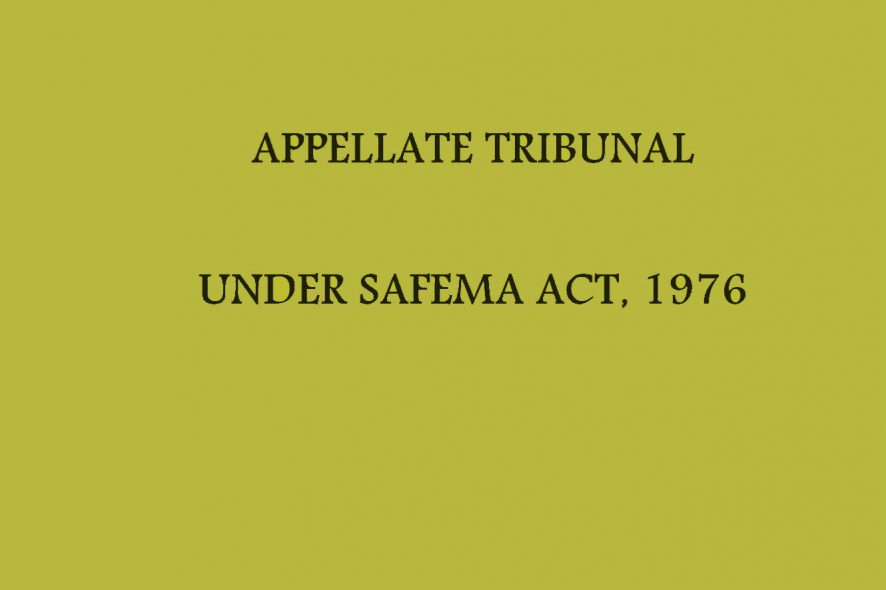Appellate Tribunal for SAFEMA, FEMA, PMLA, NDPS & PBPT Act: Justice Manmohan Singh (Chairman) allowed an appeal challenging the impugned Judgment wherein the appellants were penalized for abetting illegal transfer of money.
In the present case, the respondent had alleged that the appellant-Bank abettor in illegal and unauthorized dealing of foreign exchange. The appellant-Bank had cleared four cheques issued by the Bank of Economic Affairs (which were denominated in non-convertible Indian Rupees) totalling Rs 11 Crores, for the purpose of crediting the VOSTRO Account of Girobank Plc (convertible rupee account) maintained by ANZ Grindlays Bank. Thereafter, this money was freely transmitted outside India in foreign currency by Girobank Plc. The Adjudicating Authority issued show-cause notices in respect of four cheques and imposed penalties against the appellants.
The counsel representing the respondents, Ashok Kumar Panda submitted that on receipt of the said amount of Rs 3,00,00,000 from Canara Bank, the ANZ Grindlays Bank, an authorised dealer of Foreign Exchange in India credited to the non-resident-Girobank Plc, London. Thereby on the instructions from the Canara Bank, the non-convertible rupee funds of the Bank of Economic Affairs into the convertible funds and transferred the same in foreign exchange to Girobank Plc., London a person resident outside India.
Thus, Canara Bank, Bombay abetted ANZ Grindlays Bank in contravening the provisions of the Foreign Exchange Regulation Act, 1973. The respondents placed reliance on the Supreme Court’s statement on abetment in the case of State of Madhya Pradesh v. Mukesh, 2006 (10) SCALE 346 wherein the Apex Court stated “A person, it is trite, abets by aiding, then by any act done either prior to, or at the time of, the commission of an act, he intends to facilitate and does, in fact, facilitate, the commission thereof would attract the third clause of Section 107 of the Indian Penal Code. Doing something for the offender is not abetment. Doing something with knowledge so as to facilitate him to commit the crime or otherwise would constitute abetment.”
The counsel representing the appellant-Bank, Debarshi Bhuyan submitted that although cheques were honoured by the Canara Bank, they did not possess any knowledge of the fact that the cheques were to be remitted abroad. The appellants relied on Shri Ram vs. State of U.P., (1975) 3 SCC 495 wherein it was held that in order to constitute abetment it must be established that there were active complicity and intentional aiding. The appellant further submitted that it was not within the knowledge of the appellants that the money was to be transferred abroad.
High Court upon perusal of the facts and records allowed the appeal. The Court stated that ANZ Grindlays Bank had presented the drafts to the appellant for payment in normal clearance without being accompanied by the required form A3 and in these circumstances, the appellant had no reason whatsoever to believe or to apprehend that the proceeds of the said draft were to have been remitted outside India.
Further, Court mentioned that the adjudicating authority has without considering the role of the officers of the Canara Bank imposed a penalty on them and also considering the similarity in the appeals filed by Standard Chartered Bank in another appeal, wherein the issue of abetment has been seen not to arise, the appeals were allowed.[Canara Bank v. Special Director, 2019 SCC OnLine ATFEMA 16, decided on 20-09-2019]






